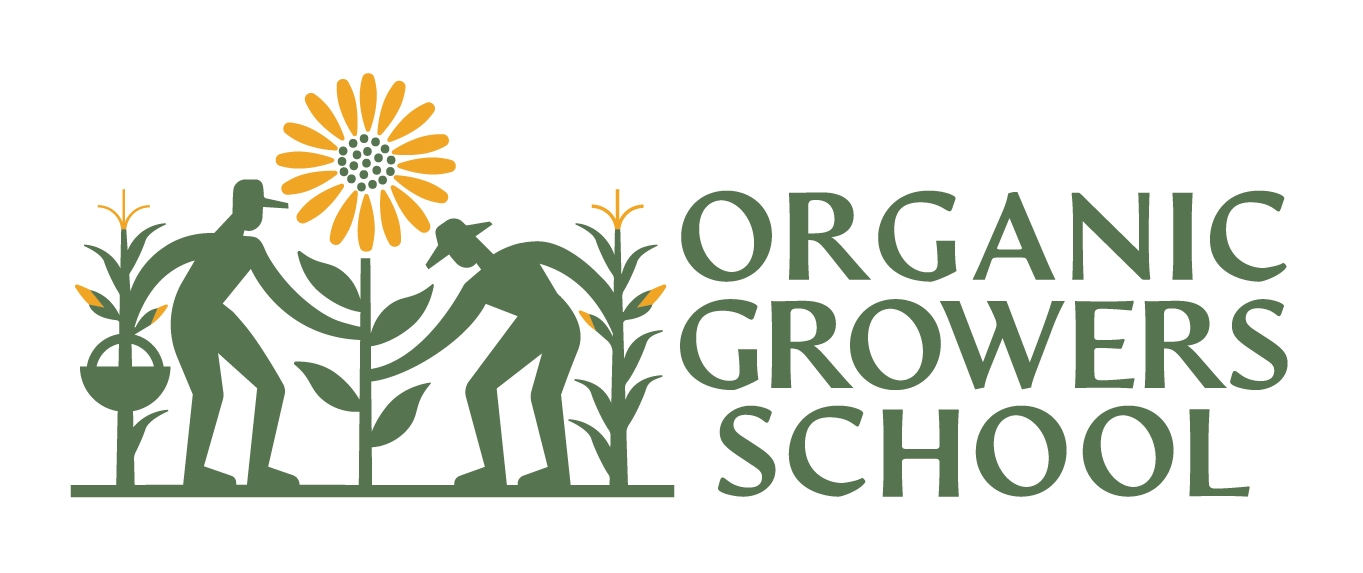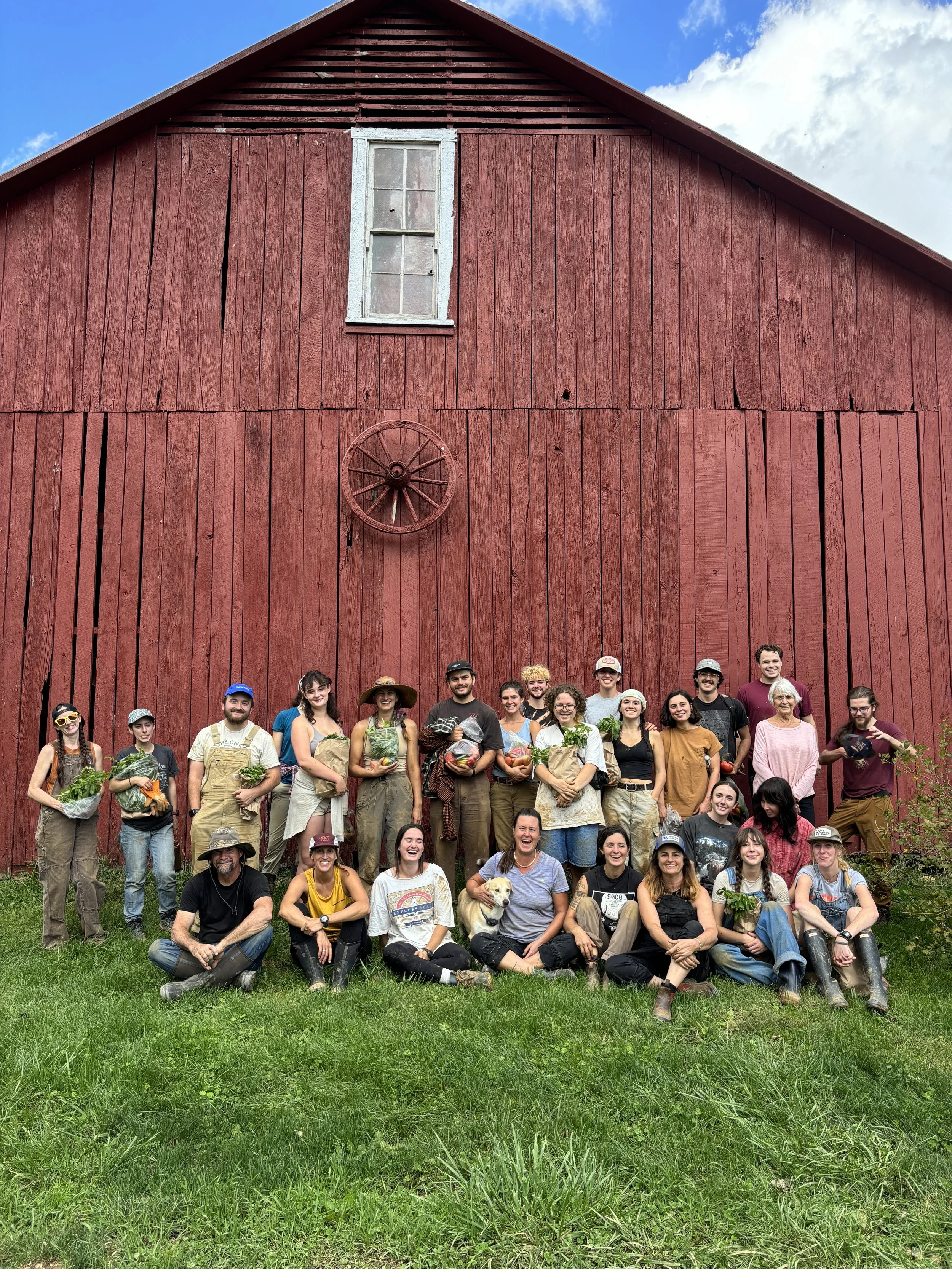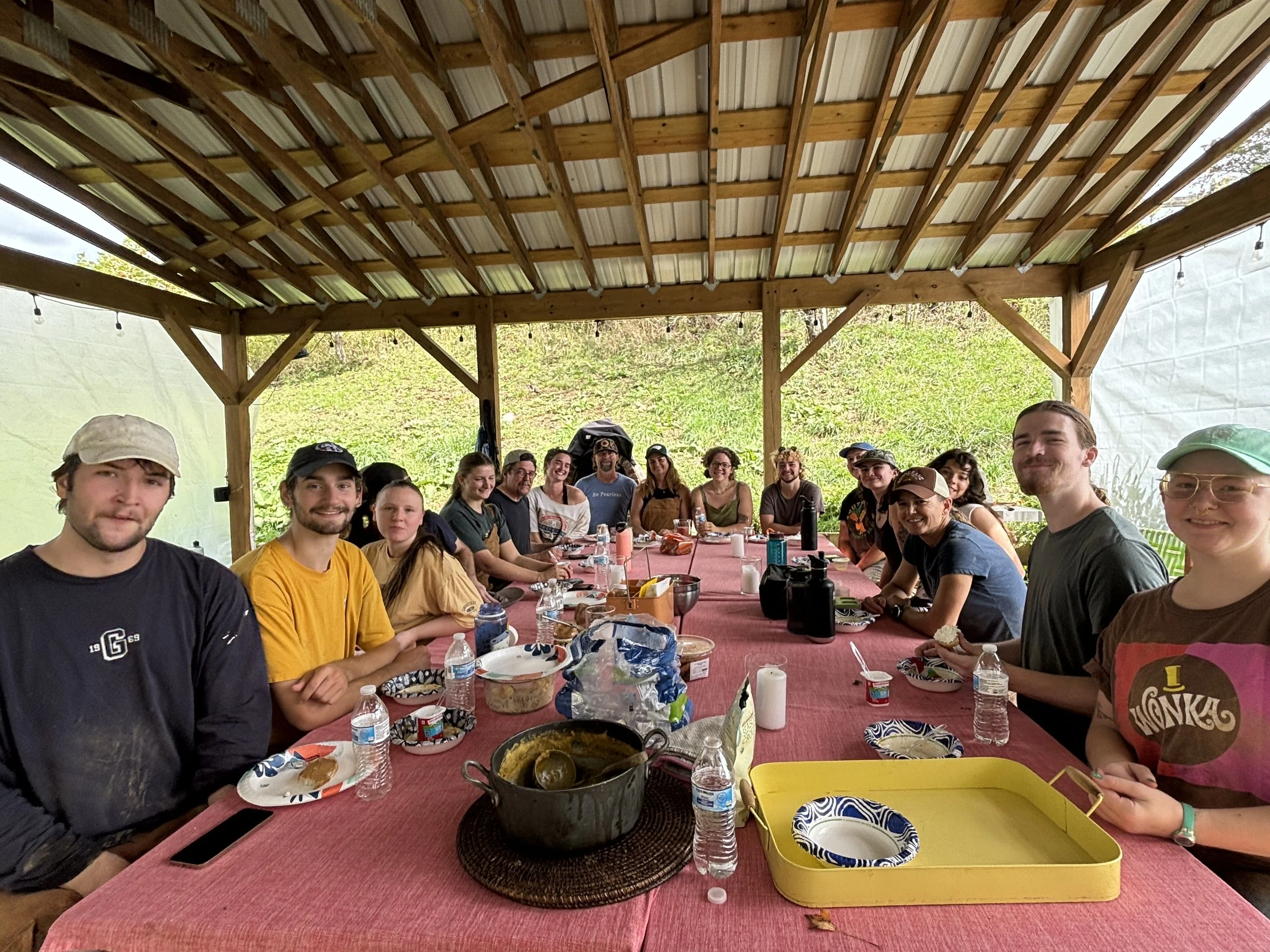Springhouse Farm: A Story of Recovery and Resilience
One year ago, Hurricane Helene swept through Western North Carolina and left widespread devastation in its wake. The storm damaged farmland across the region, disrupted local food systems, and overwhelmed farmers who depend on their land for both sustenance and livelihood. In Western North Carolina, nearly 86% of small-scale, family-owned Appalachian Grown farms suffered physical damage. Almost 70% reported damage to their land or waterways. Many farms face cleanup and recovery costs averaging about $40,000, with lost sales in 2024 averaging $30,000 per farm. (ASAP Local Food Research Center)
Amid this landscape of loss, the story of Springhouse Farm in Vilas reflects both the challenges and the resilience of our farming community.
“We prepared the farm as much as we could leading up to the storm, but we were not prepared for anything as strong as Hurricane Helene. When our farm flooded, the produce stand floated away, stream banks collapsed, and the water became contaminated. Both of our wells were damaged — one was polluted and the other had its pump buried in silt — and in the end, we lost all of our crops.”
The damage at Springhouse was devastating, and Amy says the hardest part was watching decades of carefully amended and nurtured soil wash away. “It’s a different level of loss, of course, than life and home, but the soil is what we depend on to grow our food.”
The Power of Community
What happened next at Springhouse Farm mirrors what we saw across the region: an outpouring of support, neighbor to neighbor and farm to farm.
Amy remembers the most overwhelming feeling being helplessness, but also how quickly that shifted when people showed up. Let it Grow Lawn & Landscape, a landscape company from Winston-Salem, arrived with heavy equipment and worked for days, camping in their cars and sharing meals with Amy’s family. Local organizations pulled together work crews, and students from the Building Science program in the STBE Department at Appalachian State University, led by Professor Christopher Schnoover, joined in. Thanks to their hard work, a brand-new produce stand is now up and ready to serve the community! Dahlia farmers from across the country sent tubers to replace thousands lost in the storm. Farming partners and community groups raised funds to restore wells, rebuild streambanks, and replace perennials.
“I’ve never seen anything like it,” Amy said. “The most overwhelming feeling of helplessness in the face of disaster was softened by all of the generosity shown to us by neighbors and strangers alike. Neighbors helped neighbors.”
Rebuilding Stronger
Thanks to this outpouring of community support, Springhouse Farm (like many others in the region) was able to rebuild. By the end of June 2025, less than a year after Helene, the farm once again opened to visitors for agritourism events.
“Miraculously, we were able to open our farm by the end of June. Honestly, the farm looked prettier than ever before,” Amy shared. The farm now features a pond, restored streambanks, a wildflower habitat, and a new farm stand.
Still, recovery is not a linear path. The soil and ecosystem carry long-term changes, and the growing season brought unusual pests, crop failures, and fewer pollinators than before. “I’m so connected to this little patch of earth,” Amy said. “I’ve weathered many storms out here and I’ve dedicated my life to my one true love, which is farming. But this growing season was just… off. It felt profoundly confusing.”
Farmers across the region share these feelings. Even after rebuilding, the work of adjusting to a shifting climate and ongoing challenges is far from over.
Owner & farmer Amy Fielder with this summer’s flower crop
The Joy That Remains
Through it all, one part of Springhouse flourished. “The flowers gave us an immense amount of joy this year,” Amy said. “They brought happiness to our interns, to visitors at you-pick days, and even to strangers who stopped by after reading about us. In the face of such beauty, for just a moment, we could forget about the impact of Helene.”
Looking Forward
Amy’s story is deeply personal, yet it reflects the experience of so many farmers in Western North Carolina. Helene was not an isolated event but part of a new reality that farmers everywhere are navigating.
“As much as I don’t want to keep talking about Helene, I think it’s important as a farmer because this is the new normal,” Amy said. “It’s not going away. Farming is inherently risky, and we have to adapt and mitigate risk.”
At Organic Growers School, we are honored to walk alongside farmers like Amy who show us what resilience looks like in practice. Through community support, farmer-to-farmer education, and climate resilience programs, we continue to work together for a stronger, more sustainable future.
If you’d like to learn more about how farms across WNC are continuing to rebuild and how you can lend a hand, visit our Hurricane Helene Recovery Efforts page on our website at https://www.organicgrowersschool.org/helene-recovery.
Photos from Springhouse Farm’s recovery are shared with permission. Learn more about their farm at springhousefarm.net.





